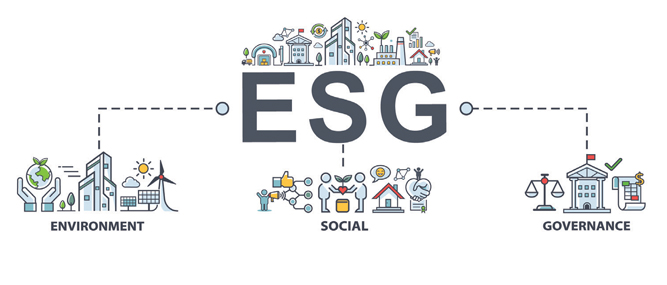Every few years talking heads get up and start preaching about the latest business buzzwords or concepts. I found myself recently doing this at the Western Pallet Association annual meeting. During my closing address titled, “Back to the Future – This Isn’t Your Father’s Pallet Industry,” I covered some of the industry changes over the last 20 years and what this means for the future.
One of the management concepts that you are likely going to hear a lot about is Corporate Social Responsibility (CSR). This is just a fancy term for being a good neighbor, and it means a lot of different things to many different people.
Closely connected to CSR is incorporating Environmental, Social and Governance (ESG) principles into procurement processes and policies. ESG is more than just political correctness or social justice. It focuses on finding real solutions to produce better societies and a better planet. Honestly, this is something that many forest products and pallet companies do every day. But they may not get credit for it. Quite the opposite, some may think of them as the villain.
ESG starts with looking at what your company does when it comes to key areas, such as the environment and sustainability, helping the marginalized or underprivileged in society and creating better communities. What are you already doing to improve these concerns? What could be done better? How can you capture, quantify and share your current achievements with employees, customers and business partners?
Many pallet companies may already be doing a lot in this regard because pallet companies tend to hire minorities, immigrants and second-chance people who are looking for someone to give them an opportunity. You may already be doing a lot when it comes to offering life skills training, benevolence, scholarships, etc. These are all things that some companies are doing to develop long-term relationships with employees and their families. Maybe your company offers paid time off for local volunteer projects. Or maybe the company has specific charities it raises money for such as those to fight cancer or help wounded veterans? Do employees volunteer as coaches in local youth sports programs or collect food for the local food bank or serve the community through churches? These are all things you can champion, provide some resources to assist and quantify in your ESG goals and marketing.
A key area of focus is environmental and sustainability goals that a company can develop and support. Main concerns include reducing waste, recycling products, upcycling material to a higher purpose, eliminating empty transport miles, conserving resources, protecting watersheds, reducing landfill impacts, using biomass for energy, eliminating packaging waste through better unit load designs, and collaborating with customers to make supply chains greener.
These all sound like great ideas. But it really takes one person with a team to help champion the cause. Most companies that do a good job when it comes to ESG have one person or a team head up the initiative. This may be a duty that employees take on beyond usual job requirements. Or a company may pay and task specific employees with leading the effort. The more resources you put behind your ESG strategy, the better results it will likely bring in terms of customer goodwill, improving the public profile of your business and possibly boosting sales.
The thought of ESG programs can raise a number of worthwhile questions. This isn’t something to run off and try to do in just an afternoon with a few executives. It takes focus and intention to do it right. But it isn’t just something for major corporations to do. Small to mid-sized companies in the pallet and lumber industries can get in on the act and use ESG to defend their key relationships.
These are some key questions to consider as you evaluate opportunities and pitfalls in ESG.
• Is this just a fad or is it here to stay?
• Will ESG hurt my company’s competitiveness?
• Accurate measurements – aren’t many ESG goals hard to qualify?
• Will ESG accountability lead to disclosure of less than flattering information to the public?
• How will ESG change my company’s due diligence and internal reviews?
• Where do I start? The entire conversation seems beyond my expertise.
• Is this going to cost me a ton of money?
• Why should I start now when my customers aren’t asking for it yet? I am too busy now. I think I will wait for later.
The best place to start is to decide what role environmental, social and community improvement goals should be in your company’s future. Is this something that management and ownership can get behind? Benchmark and look to see what others have done in your industry. The Enterprise will be covering this trend more in the near future. Look out for ideas and ways that you can turn ESG from a giant question mark to a strength in your organization.





